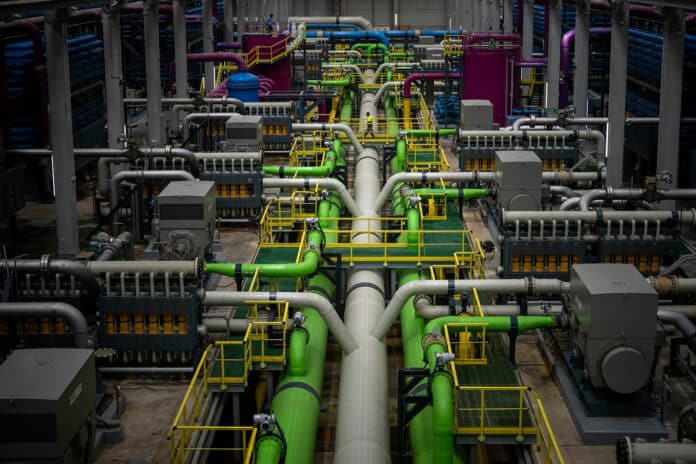A drought-stricken region of Catalonia in Spain has taken action to address the drought crisis by installing a new floating desalination plant. The city of Barcelona, which already relies on Europe’s largest desalination plant for domestic use, will benefit from this addition and ensure its drinking water supply is guaranteed.
Barcelona is experiencing a historic drought due to below-average rainfall and the impacts of climate change. However, the city has already taken steps to address the issue by relying on Europe’s largest desalination plant for domestic water use. A temporary second desalination plant will be installed in the city’s port later this year to help alleviate the water shortage. Hopefully, these measures will provide some relief to the region and help ensure a sustainable future for Barcelona.
Officials have found a new way to boost Barcelona’s water supplies without having to resort to shipping in water. According to David Mascort, who is in charge of the regional environmental authority, a floating desalination plant will provide a more cost-effective and environmentally friendly solution and greater supply security.
The plant will produce 40,000 square meters of water per day, which is much more than the 25,000 square meters that ships could bring in each day.
Mascort said the new plant is set to begin operations in October. Once operational, it will generate approximately 6% of the city’s water consumption, which is lower than the current permanent desalination plant, which provides almost 25% of the city’s water.
The city of Barcelona relies on desalination and water purification systems to meet its water requirements. The reservoirs supplying water to approximately 6 million people in central and northern Catalonia, including Barcelona, are currently at only 18% of their capacity.
The situation in Catalonia remains critical as water shortage persists despite some relief from spring rains. In an effort to mitigate the crisis, restrictions have been put in place under a water emergency declared in February, including a daily limit of 200 liters per person for domestic use and reduced water usage by 80% for crop irrigation, 50% for herd animals, and 25% for the industry.
Mascort said the additional drinking water could help prevent, or at the very least delay, more stringent water restrictions in the upcoming months.
